Brought to light in 1935, after the basilica hall, the building is considered the most regal and eloquent of the late antiquity residence for the dynamism and sumptuousness of its architecture, consisting of three large
apses
.
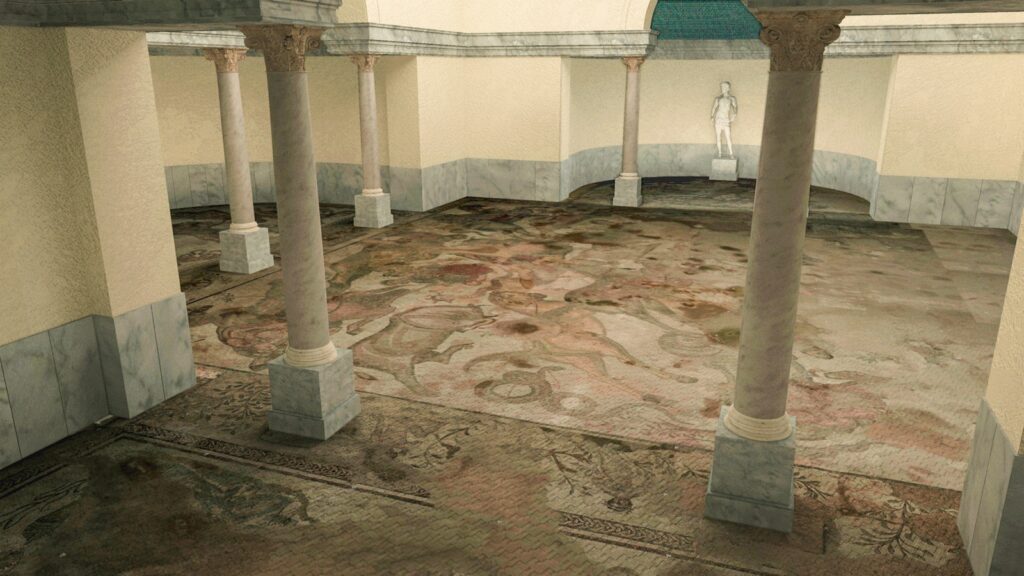 The hall’s role of reception already stands out from the staircase, covered in marble, enriched by two central columns in grey marble, which introduce the entrance.
The hall’s role of reception already stands out from the staircase, covered in marble, enriched by two central columns in grey marble, which introduce the entrance.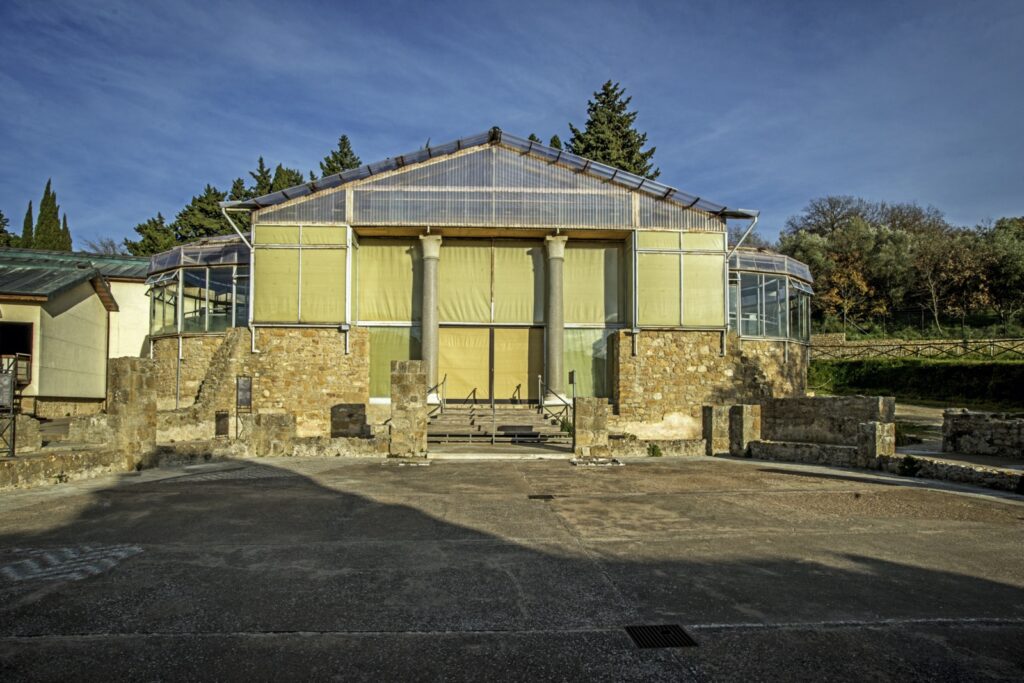 The large space served as the official dining room of the dominus and would have been furnished with
stibadia
The large space served as the official dining room of the dominus and would have been furnished with
stibadia
, probably placed under the
apsidal vaults
.
In the area delimited by the central square,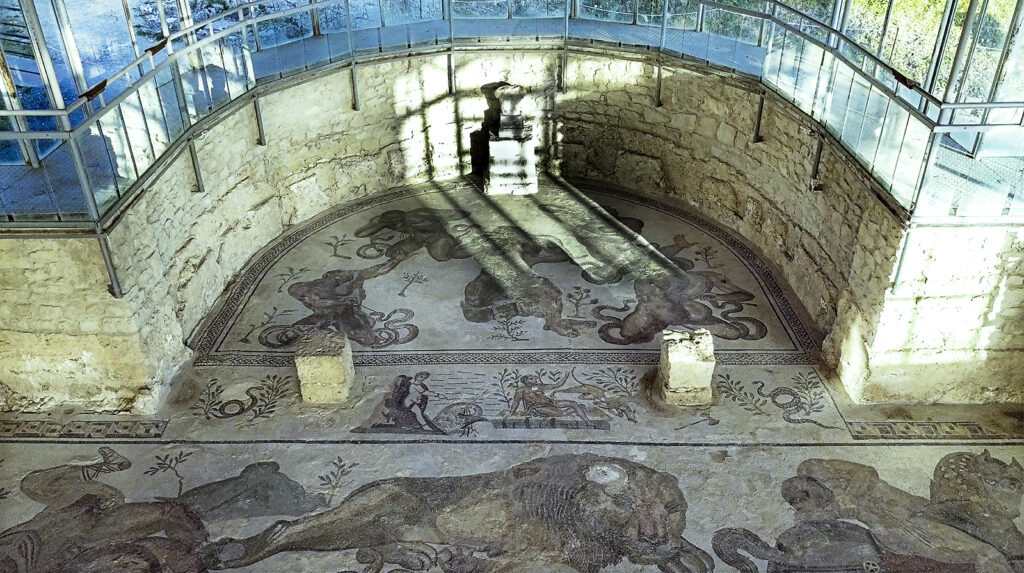 dances and concerts took place during the symposia that may well have taken place with the flair of the famous
Trimalchio’s feast
dances and concerts took place during the symposia that may well have taken place with the flair of the famous
Trimalchio’s feast
described by Petronius. During the banquets and symposia, panegyrics were recited, celebratory speeches in honour of great feats, which closely recall the mythological mosaics of the vast hall, in which the labours of the gods and heroes were exalted.
These are a heroic celebration of the villa’s commissioner, through a stylistic expressionism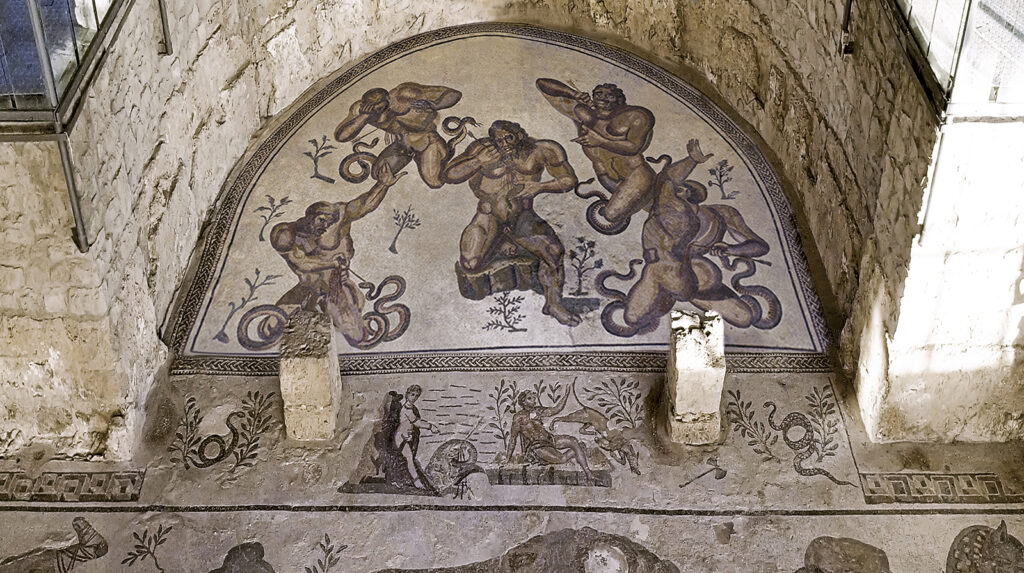 that differs from the rest of the rooms,
that differs from the rest of the rooms, 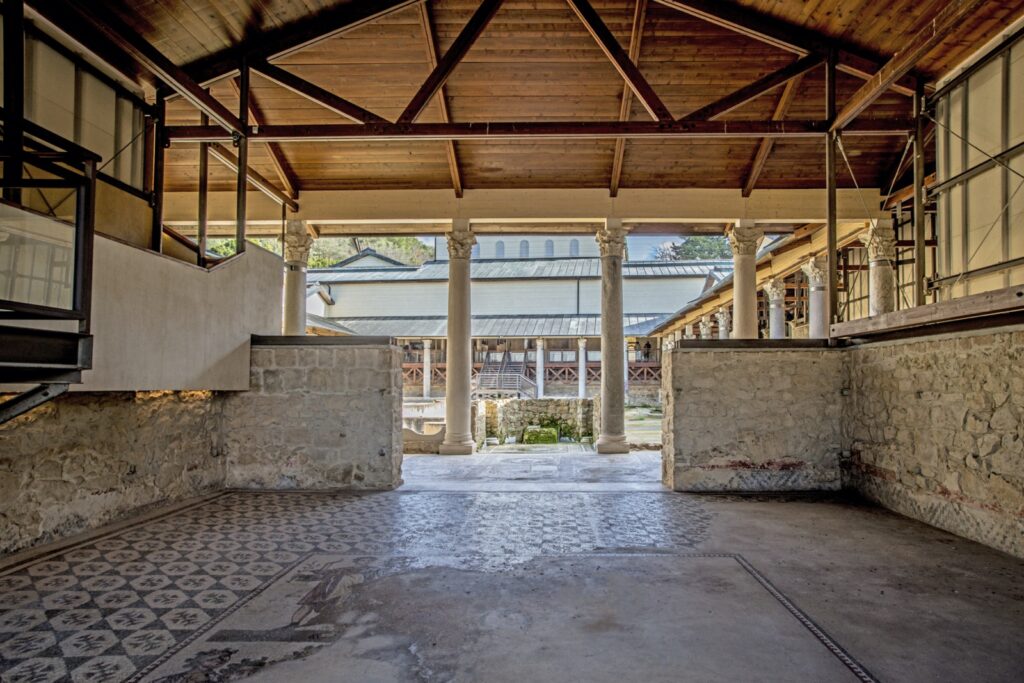 probably because it was built by different teams of master mosaicists, at a later time than the primary nucleus surrounding the
quadrangular peristyle
probably because it was built by different teams of master mosaicists, at a later time than the primary nucleus surrounding the
quadrangular peristyle
.